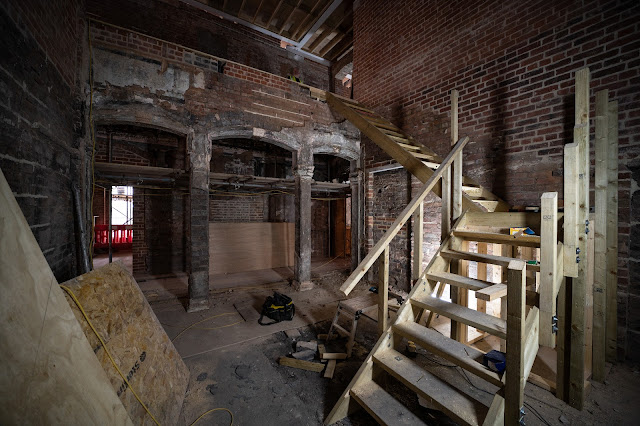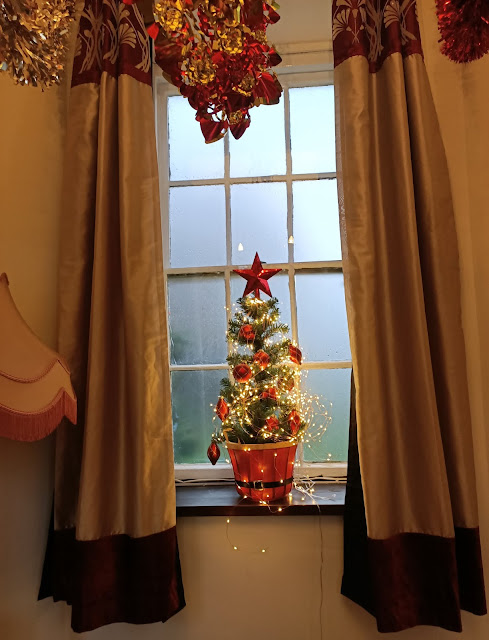A Secret Source
A recent restoration tour
In the house, we’ve had visits from the window manufacturers,
in preparation for the next stage of the build. The roof is coming along nicely
too. New materials are making their way up the scaffolding and onto the roof as
fast as the men can carry them. There’ something very satisfying seeing the
rows of uniform Vermont green slates stretching out across the roof.
 |
| The immense task of tiling Betley Court |
Meanwhile in the gardens, Tanya and I have been battling the dry conditions, and it has almost become a full-time job keeping plants watered. The temperatures on the formal lawns are a good couple of degrees hotter than elsewhere in the gardens, and it makes for uncomfortable working conditions at times. The potted plants in particular need watering on a daily basis.
 |
| Potted plants like these zonal pelargoniums really suffer in the heat, and need watering everyday |
 |
| Verbena bonariensis thrive in the formal beds |
The threat of a hosepipe ban is never far away, and we’ve
been thinking how we might store water in future. Somebody suggested we use the
water stored in the IBCs (intermediate bulk containers) that form the
weighted footings of our temporary scaffolding roof structure. I didn’t like to
burst their bubble, but the water stored in the IBCs is currently doing quite
an important job holding the scaffolding down, especially when the wind gets up!
But we might have to hang on to a few IBCs for rainwater storage when the
scaffolding is taken down later this year, and set them up so we can store and
use rainwater in the future. If we fitted them with some sort of collection
funnel (I’ve used an inverted plastic bin lid with hole drilled in previously) we
could collect water over the rainier months for use in the summer.
 |
| An intermediate bulk container - which can hold a tonne of water |
There is, of course a secret reservoir at Betley Court. The octagon
room to the north west of the house was built as a refrigeration room in 1790 by
the Staffordshire County architect Robert Griffith, replacing an earlier
ice-house situated near Betley Mere. Underneath the octagon room is a brick
built, vaulted cistern that collected rain that fell onto the roofs of Betley
Court. The water remained at a steady 4-5°C, like modern refrigerators,
and was used to keep the temperature steady and produce fresh. Nigel remembers
a free-standing metal fridge unit lined with cork that provided insulation.
.jpg) |
| Robert Griffith's drawings for the building of the octagon room.The reservoir is drawn in dashed lines and is a full room sized chamber, built below ground. |
Although the refrigeration unit has long since been removed, the reservoir still sits under the octagon room, and still collects water from the roofs. These days, the octagon room is now a rather unusual shaped living room for one of the apartments, with little indication of its former use, but hidden under carpet is a trap door, and a suspended floor over the reservoir, so potentially, we have our own source of summer months water!
All best wishes
Ladybird Su




Comments
Post a Comment